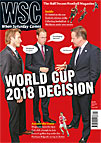 Dear WSC
Dear WSC
Howard Pattison (Sign of the times, WSC 286) wonders why there are so few official plaques to footballers in London, but goes on to answer his own question: most of the big names from the pre-war era were based in the north-west, and all the more recent players mentioned in the article died less than 20 years ago. The “20-year rule” – which applies to all suggestions made under the London-wide blue plaques scheme – is designed to ensure that the decision to commemorate an individual is a historical judgement, made with the benefit of hindsight. I could agree that Bobby Moore is as good a case as any for making an exception – but where, then, would you draw the line? The blue plaques scheme is run almost entirely on the basis of public suggestions. In recent years, considerable efforts have been made to increase the hitherto small number of nominations that have come in for sporting figures, including footballers. This has brought some success – Laurie Cunningham and Ebenezer Cobb Morley, the FA’s first secretary and author of the first football rulebook, are now on the shortlist for a blue plaque. As time goes on, more outstanding players and managers will become eligible for consideration, and surely join them. In view of this – and, among other projects, the involvement of English Heritage in the Played in Britain publications and website – the charge that “those who administer our heritage simply don’t see football as part of it” seems about as close to the target as a Geoff Thomas chip.
Howard Spencer, English Heritage
Search: ' Giorgio Chinaglia'
Stories
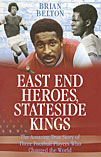 by Brian Belton
by Brian Belton
John Blake, £17.99
Reviewed by David Wangerin
From WSC 256 June 2008
We’ll leave it to West Ham fans to decide whether Ade Coker (nine appearances in three seasons), Clive Charles (14 in four) and Clyde Best (174 in seven) represent the “East End Heroes” of the title. But “Stateside Kings”? If anybody associated with America’s egregious pansy sport even approached the status of a sovereign, they certainly weren’t playing for the Boston Minutemen or the Portland Timbers.
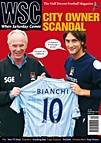 Did Giorgio Chinaglia try to make the president of Lazio an offer he couldn’t refuse? Matthew Barker reports on a playing legend being charged with extortion
Did Giorgio Chinaglia try to make the president of Lazio an offer he couldn’t refuse? Matthew Barker reports on a playing legend being charged with extortion
Giorgio Chinaglia has never been a man to waste too much time worrying about what others might think of him. Certainly few in Italy are expecting the one-time Azzurri striker to turn up at a Rome courthouse on October 26 to answer accusations of extortion and trying to manipulate share prices.
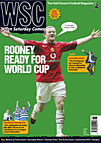 Verona were the last team outside the provinciale to win a Scudetto. But, as Luca Ferrato explains, referees had a big say
Verona were the last team outside the provinciale to win a Scudetto. But, as Luca Ferrato explains, referees had a big say
The long-term significance
This was the last time to date that the Serie A title went to a provinciale rather than one of the big city clubs. “It’s a Scudetto on leave,” Gianni Agnelli, the owner of Juventus would comment, joining the one won by Cagliari in 1970. Verona’s triumph was a watershed between the domination of Juventus and Roma in the early 1980s and the AC Milan-Napoli rivalry at the end of the decade. Maybe it’s just a coincidence, but this was also one of the few seasons in which match referees were selected by a random draw. Usually they are assigned to specific games by a technical committee, which has prompted claims that the big clubs get the officials they want, rather than those who might not be “pliable”.
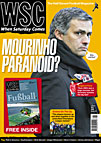 In our new book Soccer in a Football World, David Wangerin charts the troubled history of the game in the United States. In this extract he chronicles the short-lived euphoria that surrounded the NASL, the league that brought Pelé, Beckenbauer and Muhammad Ali to New Jersey, but still ultimately failed to ignite nationwide interest in ‘soccer’
In our new book Soccer in a Football World, David Wangerin charts the troubled history of the game in the United States. In this extract he chronicles the short-lived euphoria that surrounded the NASL, the league that brought Pelé, Beckenbauer and Muhammad Ali to New Jersey, but still ultimately failed to ignite nationwide interest in ‘soccer’
Having convinced Pelé to come out of retirement for an unprecedented amount of money, Warner Brothers saw no reason why a similar offer wouldn’t entice Franz Beckenbauer. Initially, Beckenbauer insisted the earliest he would come was after the 1978 World Cup, but an offer of about $2.8 million over four years helped change his mind. He arrived in New York in May 1977. Few could see it, but the Cosmos and the league had begun to take leave of their senses. If Pelé’s arrival had boosted the NASL, Beckenbauer’s signalled one club’s intention to overwhelm it. Some were sceptical of his appeal. “He’s a great player, don’t get me wrong,” Giorgio Chinaglia brooded. “But is he going to help us with the crowds? No. He won’t draw in this country.”